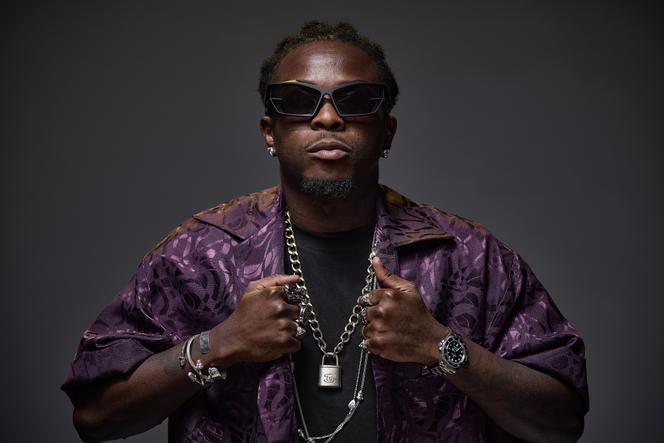


On the evening of Thursday, February 15, many people walking by The Olympia in Paris were unfamiliar with Didi B, whose name was displayed in red letters on the venue's façade. Yet the music hall, on Paris's Boulevard des Capucines, was packed to the rafters. Four days after the Elephants' victory at the African Cup of Nations (AFCON), the Ivorian community was celebrating another success story, that of rap ivoire (French for "Ivory rap"). In this genre, rappers use Nouchi, a local creole, to narrate the everyday experiences of Ivorian youth, from the widespread consumption of Calao, a now-prohibited beverage, to an intense eagerness to party and aspire for betterment.
Didi B is one of its main stars; his hits include Chérie Coco, Depuis que j'ai l'argent and Aicha. As the first Ivorian rapper to fill a Parisian venue, he has now recorded an album, Before Olympia, which was released a few days earlier.
Arriving over an hour late for their concert, Didi B's musicians took to the stage to the sound of a foghorn more typical of football stadiums. The guitarist, bassist, drummer, keyboardist and DJ were all dressed in the orange jerseys of the Côte d'Ivoire national football team. With a single burst of energy, the crowd sang L'Abidjanaise, the national anthem, to a surprising beat.
Singer Aya Nakamura slipped into the front row with her friends, and the new star of French R'n'B, Lyna Mahyem, did the same with her producers a few seats down. Later, on stage, there was a parade of French rap stars: Franglish, Kerchak... They had all come to celebrate the first Olympia concert by the champion of rap ivoire, who burst onto the stage dressed as a Japanese shogun. In his luggage, he brought along his friend Tam Sir, the producer of the brilliant Coup du marteau, the song (and accompanying dance) that was the rhythmic soundtrack of the stands during AFCON matches.
After zouglou in the early 1990s, which reached its peak with Magic System's 1er gaou, and coupé-décalé in the 2000s with its legendary DJ Arafat, Didi B is now flooding the airwaves and social media with his rap ivoire. The 31-year-old rapper, whose real name is Bassa Zérehoué Diyilem, was first a member of the group Kiff No Beat (along with some of his cousins), which produced an Ivorian version of Afro-Nigerian pop – "rap over coupé-décalé," he explained, a few hours before his concert. As a solo artist, he focuses on flow and offers the local, very underground scene a roadmap for getting Ivorian rap out of the maquis, small bars and clubs of Yopougon.
You have 35% of this article left to read. The rest is for subscribers only.
